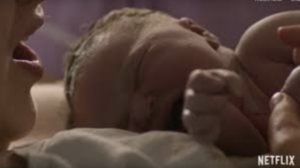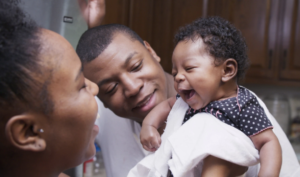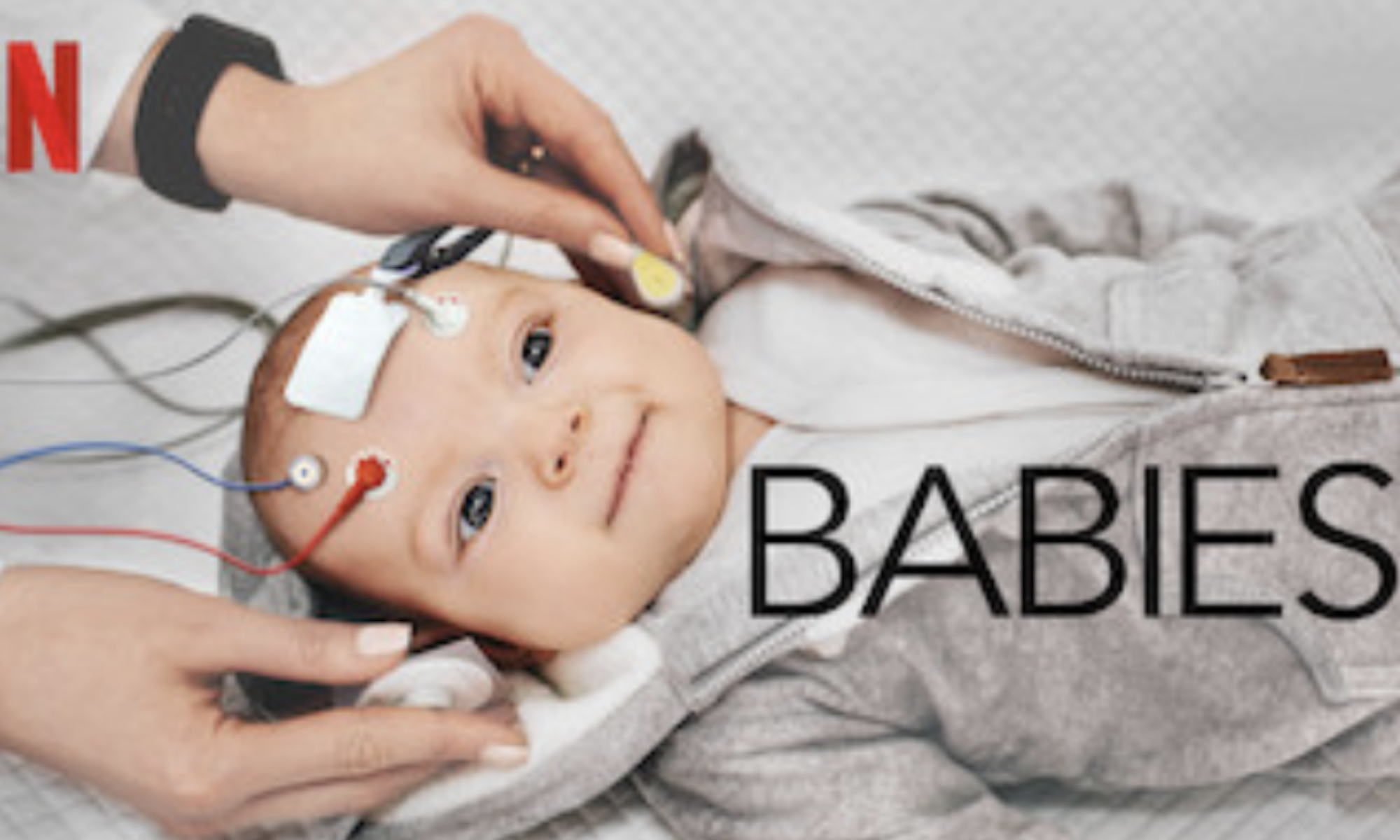
Summary:
The first episode of the series Babies starts with the birth of a little girl, Willow, and shows the mild chaos and raw emotion of the moments after birth. A voiceover begins and details the puzzle of how babies are born so helpless and then grow to become “masters of the universe,” also declaring that babies have the “answer to what it means to be human.” Dr. Ruth Feldman, who directs the Centre for Developmental Social Neuroscience at IDC Herzliya, Israel, describes the importance of our bonds with our parents and her desire to understand what is going on in our brains when “we fall in love with our babies.” In Dr. Feldman’s lab, the role of the hormone oxytocin in parent-infant bonding is studied, indicating that oxytocin increases in both mothers and infants who have a lot of physical contact. This increases the desire to bond and gives mothers the feeling of a reward. The episode continues with clips of families with babies in both London, England and Connecticut, focusing on the interactions of the fathers with their babies. The oxytocin in fathers with new babies was also measured and revealed identical levels to the mothers. Dr. Feldman details that the more you do with your child, the more oxytocin is produced, proving “fatherhood is biological.”
Further research from Dr. Feldman’s lab showed that the maternal oxytocin surge activated the mother’s amygdala much more than in fathers, perhaps demonstrating why mothers are so in-tune with their babies at night. A group of gay couples was also studied to look at oxytocin in parents who did not give birth to the children. The results showed that men who are primary caregivers have the same amygdala activation as mothers even without pregnancy and childbirth, revealing “it is a choice to be a parent to that infant.”
At Harvard University, Professor Ed Tronick studied babies in social relationships using the still-face experiment. Mothers would stop reacting to their babies and the babies would smile and cry in order to get their mothers to keep reacting to them, attempting to get back into a relationship. Professor Tronick declared that babies are born with the ability to be in social relationships, the disruption of which may have a very powerful emotional effect. Professor Tronick also studies whether a good relationship between mothers and babies helps the baby to cope with stress by measuring cortisol. Infants with better relationships show lower cortisol levels and less stress during the experiment.
Next, Dr. Anne Rifkin-Graboi, head of Infancy and Early Childhood Research at NIE, NTU, Singapore, watches as her kids go down a zipline and wonders about the impact of parenting choices on infant development. Dr. Rifkin-Graboi watched mothers play with their six-month old babies and rated their responses to their children. The babies got brain scans in an MRI, and after comparison with brain scans from soon after birth, the researchers discovered that the hippocampus varied with parenting styles, and infants with less responsive parents had slightly larger hippocampi. This suggests that the babies were managing their own stress as their parents were doing less for them. Dr. Rifkin-Graboi emphasizes the importance of babies knowing the world is safe so they can explore, instead of “thinking about safety and comfort.”

Review:
The episode involves the research of three experts which all demonstrate the importance of early bonding and support for babies in healthy development. There is also a focus on the bonding between fathers and their children, not only the commonly-studied mother-infant bond. In support of material covered in Paleo Parenting, the study “Oxytocin administration, salivary testosterone, and father–infant social behavior” indicates that men with lower basal testosterone (T) have better relationships with their children and are more involved in childcare (Weisman et. al., 48). The study involved fathers ingesting oxytocin and observing their interactions with their children. Fathers with lower basal T had a greater T increase after oxytocin administration and had “greater social–behavioral reciprocity between father and infant, indicating greater investment in the parenting context” (Weisman et. al., 51). Therefore, oxytocin supports father-infant bonding as it does in mothers, and it does so even more effectively in men who may be more likely to be more involved in childcare in the first place.
